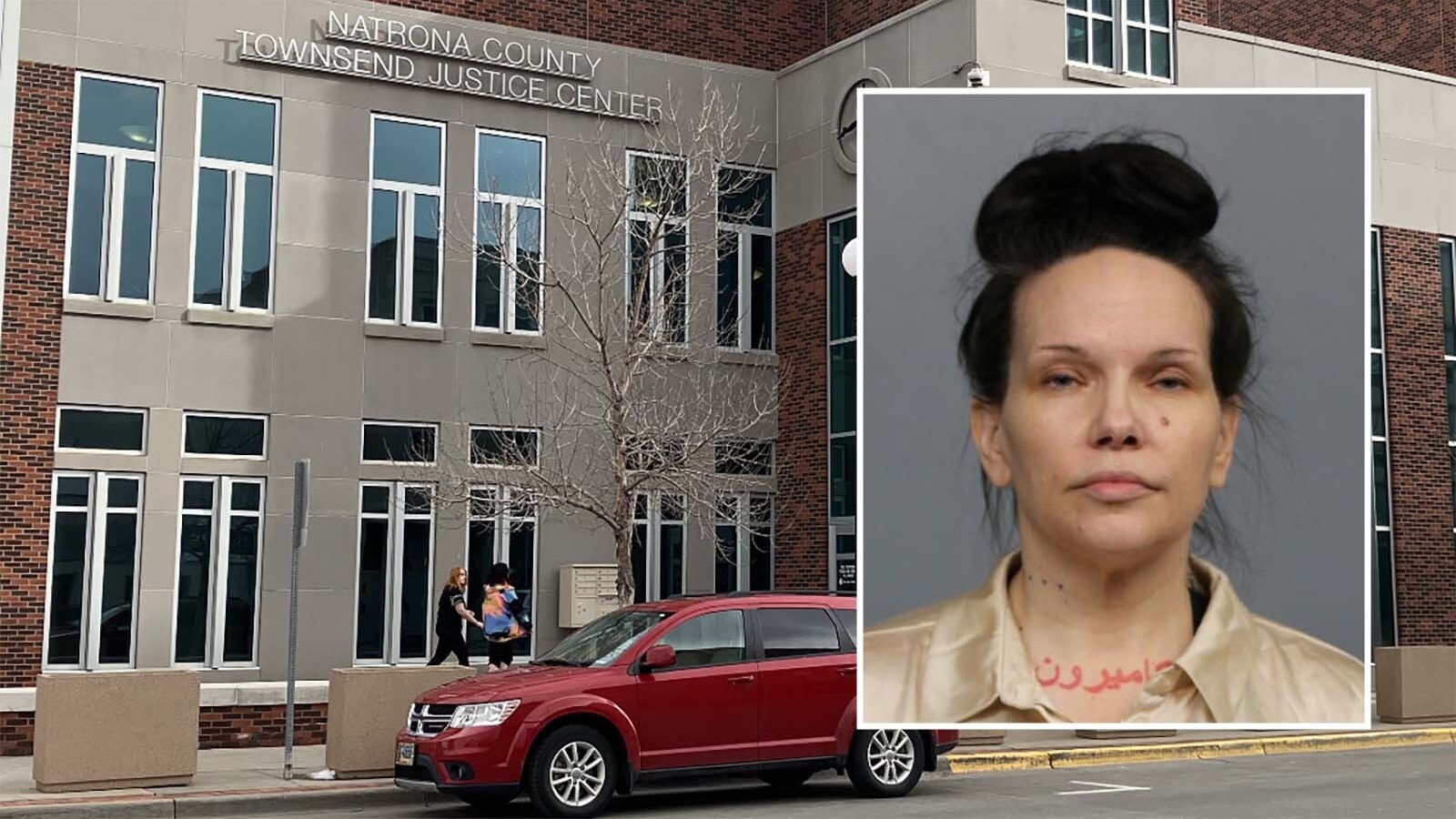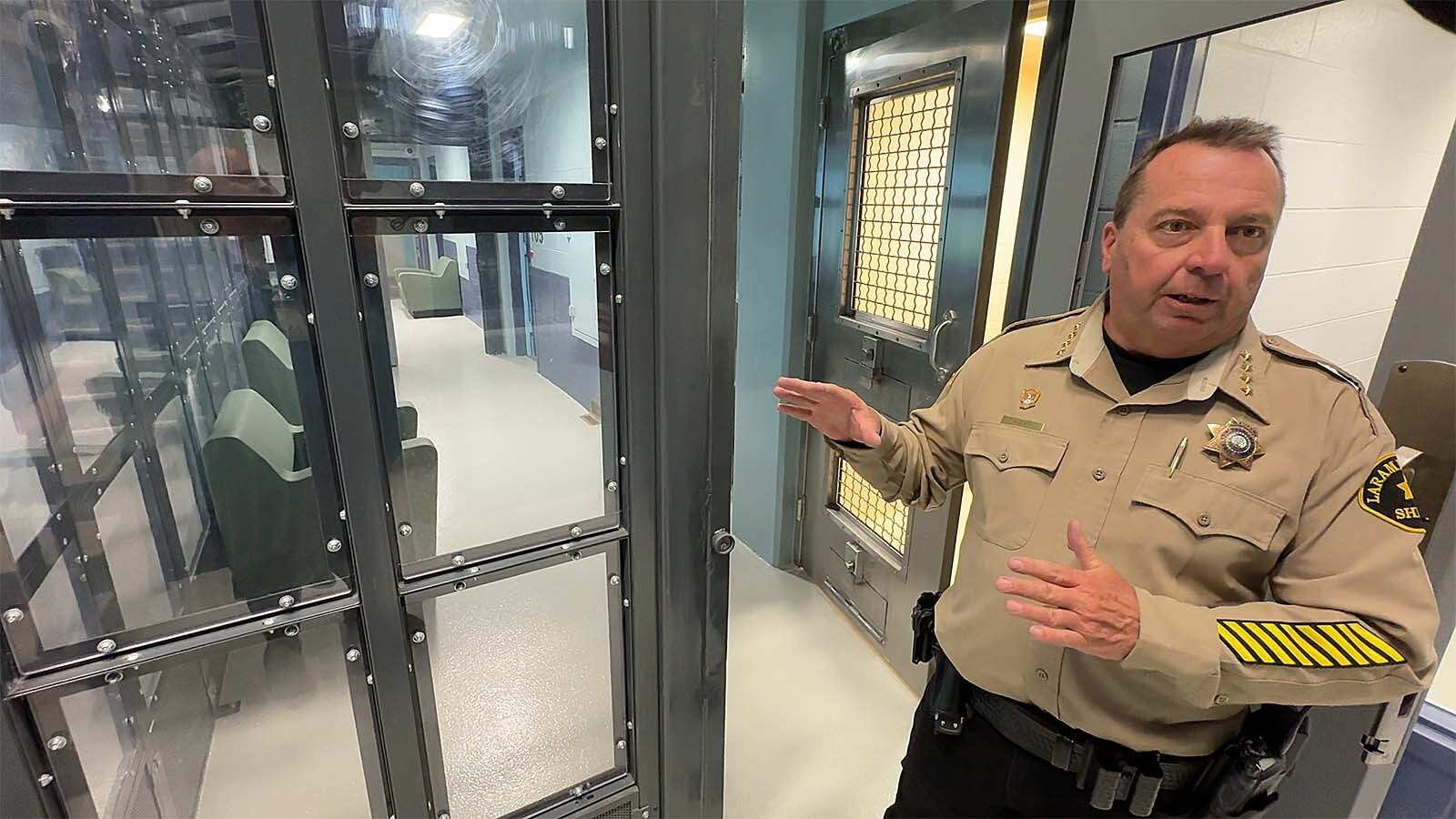Abortion advocates suing Wyoming for banning the procedure are asking a judge to make the state say how it plans to defend its abortion ban in court.
Jackson-based attorney John Robinson and his co-counsel in Johnson vs. Wyoming last week filed a motion to compel discovery from the Wyoming attorney general and Gov. Mark Gordon on behalf of six plaintiffs suing to keep abortion legal in the state, and to have the court recognize it as a right under the state Constitution.
The plaintiffs in a June 26 motion to compel discovery asked Teton County District Court Judge Melissa Owens to make Gordon and the attorney general to divulge a few key tenets of the state’s defense. They are demanding, namely:
· To know what interests the government has that would be furthered by allowing two abortion bans passed in March to go into effect as law.
· To “resolve” by adding the state’s perspective, the plaintiffs’ claims that the bans violate their constitutional rights and therefore must pass a tougher test in court.
· For the state to explain language in both statutes the abortion advocates deem “unconstitutionally vague,” including medical carveouts for doctors performing emergency abortions.
· What medical literature abortionists should reference to determine when abortion is legal and when it isn’t.
· For the state to “admit” that Reps. Rachel Rodriguez-Williams, R-Cody, and Chip Neiman, R-Hulett, sponsored an abortion ban for religious reasons.
· For the state to “admit” that the exemptions in the bans legalizing abortion in cases of rape and incest undercut its argument that the state’s interest is “to protect all potential life.”
Rape And Incest Exemptions, Twice
In two years, with multiple abortion bans on abortion and two — so far successful — legal cases against them, the Legislature’s insistence on criminal exemption in rape and incest cases has become a tricky point when the state’s executive branch tries to defend the bans.
Both the near-total ban on abortions and a ban on chemical abortion drugs passed this year are paused from enforcement during the case against them.
The plaintiffs allege that in trying to ban abortion, the Wyoming Legislature is threatening their constitutional rights of “due process, equal protection, privacy and other constitutional claims.”
The Wyoming Constitution does not contain an enumerated privacy right. It defends due process and equal protection, however. The plaintiffs claim abortion bans harm pregnant women and abortionists, making them unfair prey for the government.
When a court reviews laws that appear to violate constitutional rights, those laws must pass a rigorous court test of necessity and narrowness. The court uses “strict scrutiny,” or the highest standard of review, and checks that the law is narrowly tailored to advance a compelling government interest.
‘Potential Life’
According to the abortion advocates, Wyoming has not clearly articulated its government interests advanced by the abortion bans.
The state can’t, the plaintiffs allege, because of the bans’ rape and incest exemptions.
“Plaintiffs ask the State to admit that a fetus conceived through sexual assault or incest represents potential life indistinguishable from fetuses resulting from consensual relations,” reads the motion to compel. “The abortion bans are inconsistent with a primary interest asserted by the State — to protect all potential life.”
In Case They Get Abortions Sometime
The Attorney General’s Office hopes Owens will simply look at the abortion bans and check them against the Wyoming Constitution to see if they’re constitutional, according to past court filings.
But the plaintiffs say they’d also like to test the laws’ potential ramifications in “as-applied” challenges against them. They claim the laws are vague, and that two doctors among the coalition, Drs. Giovannina Anthony and Rene Hinkle, have to sift through a ban’s “vague exceptions” for emergency abortions.
Two birthing-age women who hope to retain the ability to have abortions, Danielle Johnson and Kathleen Dow, allegedly fear that they’ll suffer from what they say is the law’s vagueness if they get emergency abortions in the future.
The plaintiffs’ claim the state’s alleged reluctance to bare its strategies are also due to the law’s vagueness.
Gordon’s office could not be reached Monday for comment.
Establishment Clause
Wyoming can’t advance laws to further one particular religion.
The abortion plaintiffs are asking Owens to make the state admit that Neiman and Rodriguez-Williams had religious reasons for enacting at least one of the abortion bans. They cite campaign websites “that expressly identify the religion underpinnings to their belief that life begins at conception.”
The Wyoming Freedom Caucus - a group of social-conservative Republican lawmakers, also voiced religious concerns toward abortion, the filing says.
But neither Neiman nor Rodriguez-Williams, nor the Freedom Caucus were alone in passing either abortion ban. Both laws received overwhelming legislative support and the governor’s signature.
The plaintiffs also are invoking religion as one of the rights the bans allegedly violate.
Dow claims that her Jewish faith requires her to consider abortion in some instances.
There is dispute among Jewish sects about when abortions are appropriate, but the Talmud, the Torah and current rabbinical interpretation together generally place a woman’s life above an unborn baby’s life.
Could Become A Right
Johnson vs. Wyoming is shaping up to be a landmark case for Wyoming. It will determine whether the state’s judiciary perceives abortion as a right under the state Constitution’s guarantee of health care autonomy under Article 1, Section 38.
Wyoming residents have the right to make their own health care decisions, the section says, but the Legislature may temper that right for the people’s general welfare.
For nearly 50 years the U.S. Supreme Court considered abortion a federally-guaranteed right, but the high court eliminated that in 2022 with the overturn of the 1973 case Roe vs. Wade.
Now state courts look to their own constitutions.
“Plaintiffs cannot prepare for trial unless the State fully responds to its interrogations seeking this information,” the abortion advocates claim in their motion to compel. “By refusing to respond to this discovery, the State is seeking to engage in ‘trial by ambush.’ The Court should not countenance such gamesmanship and order responses to Plaintiffs’ discovery requests.”
Clair McFarland can be reached at clair@cowboystatedaily.com.





